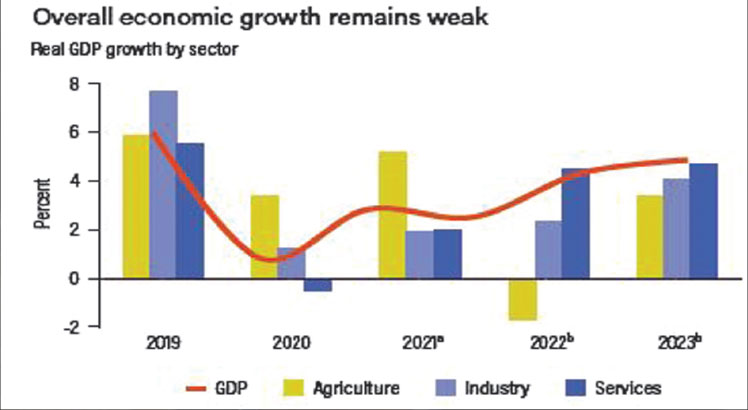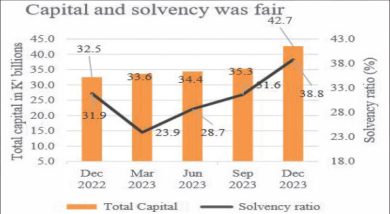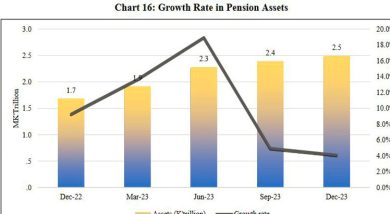Economic growth fragile, says RBM
The Reserve Bank of Malawi (RBM) says economic growth remains in a fragile state as the country continues to face a number of risks, including rising inflation and power supply disruptions.
In 2022, Treasury projected the country’s gross domestic product (GDP) growth rate at 4.1 percent, taking into account economic recovery measures it is implementing in the socio-economic recovery plan as well as the normalisation of global supply chains.
But in its fourth Monetary Policy Committee Statement, the RBM says growth remains at low ebb owing to the unfavourable rainfall pattern during the 2021/22 season, which affected agricultural production, intermittent electricity power supply and the impact of the Russia-Ukraine war, which has manifested through high commodity prices.

Reads the statement in part: “Real economic activity was estimated to grow by 1.7 percent in 2022 from 4.2 percent in 2021, before picking up to 2.6 percent in 2023.
“Meanwhile, the protracted power supply disruptions and fuel shortages, in addition to the prevailing high inflation, which is constraining consumer demand, may weigh on the growth prospects.”
RBM’s sentiments come at a time, the World Bank and the International Monetary Fund (IMF) have also slashed Malawi’s growth projection on account of the war between Russian and Ukraine and a cost of living crisis caused by persistent and broadening inflation pressures.
IMF, for instance, has put Malawi’s growth projection for 2022 at 0.9 percent from 2.7 percent earlier projected.
According to the IMF, the increasing price pressures remain the most immediate threat to the current and future prosperity of the country by squeezing real incomes and undermining macroeconomic stability.
Globally, the IMF has projected that economic growth will drop from six percent in 2021 to 3.2 percent in 2022 and 2.7 percent in 2023.
This is the weakest growth profile since 2001 except for the global financial crisis and the acute phase of the Covid-19 pandemic.
Nico Asset Managers Limited also observed that the Russia and Ukraine conflict has impacted the economy through both direct price effects and implications on downstream activities.
The firm said instability in global commodity markets is resulting in higher prices for fuel and fertiliser, further constraining foreign currency reserves and exerting downward pressure on the exchange rate, as such, growth is expected to be modest this year.
Economics Association of Malawi executive director Frank Chikuta said in an interview that low growth means low economic activity, which results in low employment and incomes for people.
He said if the Malawi economy was at a level where it had built resilience to economic shocks, the impact of shocks would have been lessened.





